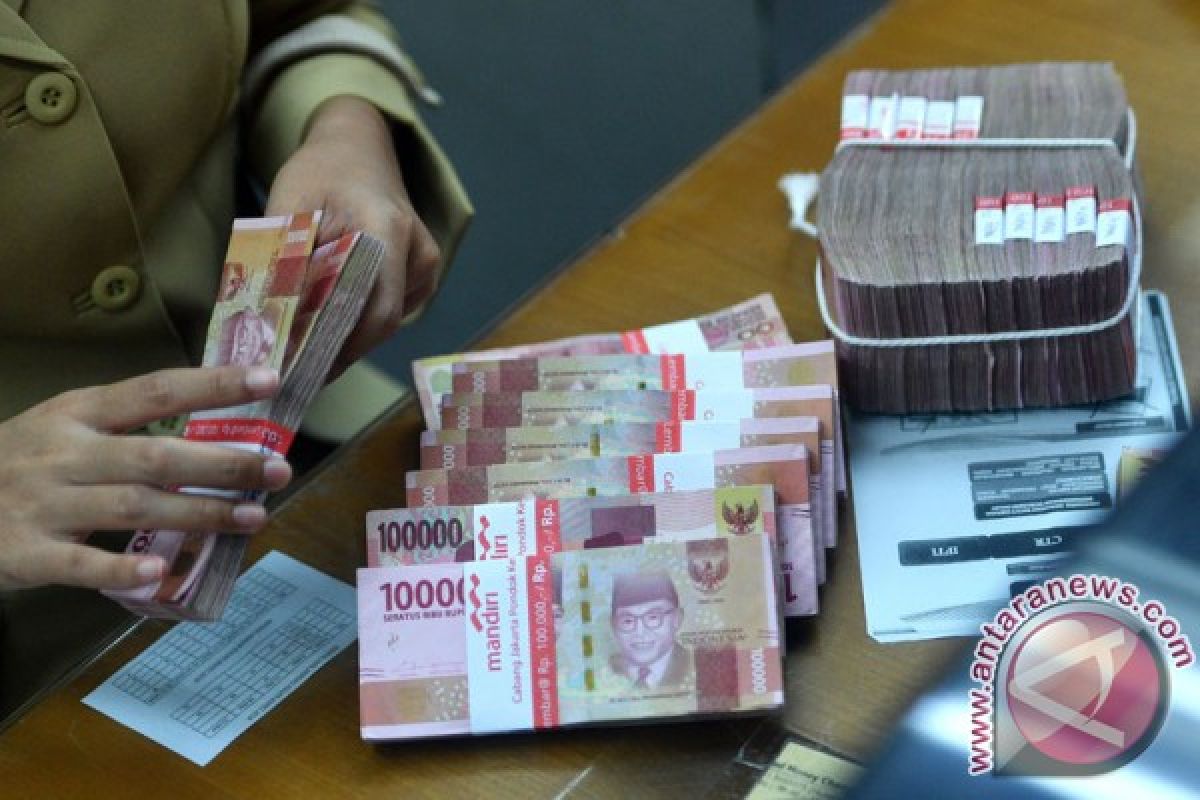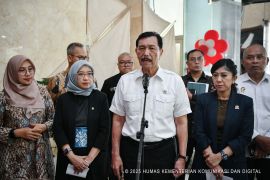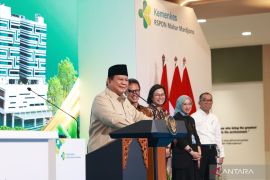"As we know, the monetary issue is the responsibility of BI. BI can intervene in the rupiah to prevent it from weakening suddenly. Should it weaken, the weakening should be slow. It is the duty of BI (to intervene), and the government agrees to it," he stated at the Vice Presidential Office here on Tuesday.
For the first time since December 2015, the rupiah broke the psychological level of Rp14 thousand per dollar on Monday. It traded at Rp14,003 per dollar in the spot market.
The rupiah fell again by 35 points to trade at Rp14,028 per dollar in the interbank spot market on Tuesday morning.
The Jakarta Interbank Spot Dollar Rate announced by BI on Tuesday showed that the rupiah weakened to Rp14,036 per dollar.
"The imminent hike in the inflation rate in the US remains one of the factors causing the dollar to strengthen, because the inflation hike will prompt the Fed to increase its interest rate," money market analyst Reza Priyabada of Binaartha Sekuritas remarked in Jakarta on Tuesday.
One of the factors pushing the US inflation rate to increase is the creation of more jobs. The number of jobs in the US has increased to 164 thousand. Although the figure fell short of the market estimate, it still recorded growth, he added.
BI believes that the rupiah can still likely strengthen soon owing to manageable domestic economic fundamentals and pressure in the past two days largely due to the dynamics of the US economy.
"The rupiah still has a likelihood of strengthening due to the manageable domestic condition," BI Deputy Governor Dody Budi Waluyo stated on Tuesday.
The manageable domestic economic fundamentals include the inflation rate, which is close to the central bank`s lower target range of 2.5-4.5 percent; manageable state budget deficit, and movement of the current account deficit within the healthy range of less than three percent of the national gross domestic product (GDP), he explained.
He pointed out that the first-quarter economic growth of 5.06 percent was also in line with BI`s economic growth target of 5.1-5.5 percent for this year. However, while referring to BI`s earlier statement, the growth fell short of the expectation of the central bank that had projected the first-quarter growth at 5.1 percent year-on-year.
"BI`s assessment of the GDP remains positive, and (the economy) is projected to grow by 5.1-5.5 percent at the end of 2018," he noted.
Reported by Fransiska Ninditya
EDITED BY INE
(T.S012/A/KR-BSR/B003)
Reporter: antara
Editor: Heru Purwanto
Copyright © ANTARA 2018












